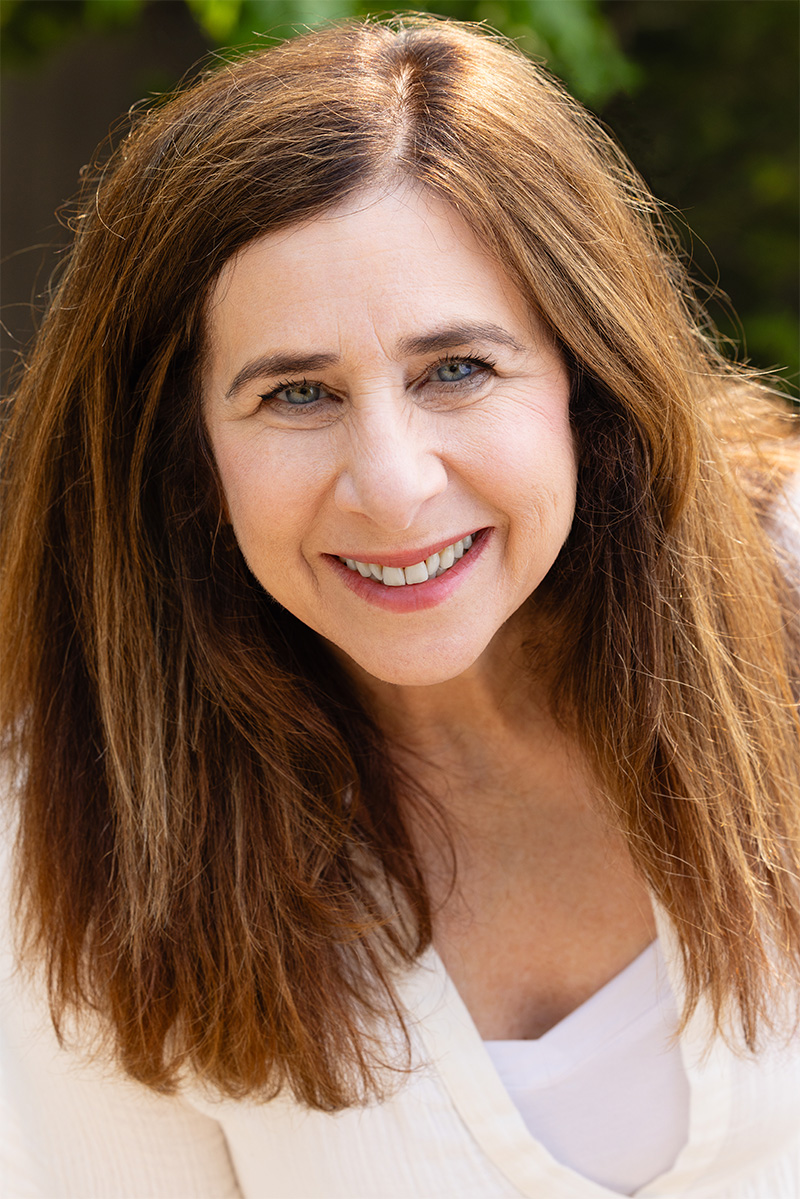
LONG BIO, told with the help of others:
Sarah grew up in Bethlehem, Pennsylvania. She is the oldest of three sisters. She graduated from Liberty High School. Her best years: 1973 and 1978, when the family lived in York, England. Claims to fame: Played Dolly Levi in Hello, Dolly and The Nurse in Romeo and Juliet. Parallel parked a 1973 Impala station wagon. Got into college.
Sarah: I wanted to live in New York City.
Miriam, Sarah’s sister: We called her “the corrupted sister.”
From Bethlehem, Sarah went to Rutgers College. She wanted to major in theater, but her mother told her to study something “more practical.”
Rich Aronson, father: like Economics.
Sarah chose English, with a History minor. Her favorite professor was Dr. Barry Qualls. He taught her how to write a short paper. He also made excellent cream puffs and treated her like an adult. She graduated with honors.
Like many writers, Sarah has had a lot of interesting jobs. After graduating, she taught “Writing from Experience” at Lehigh University. She worked as an aerobics instructor and trainer for Jack La Lanne Health Clubs. After running the service departments of nine clubs, she went back to school and earned an MSPT from Arcadia College, when it was known as Beaver College. For ten years, she worked in a variety of clinical settings including head and spinal cord rehabilitation.
Sarah: My writing life began in 2000, when someone in an exercise class dared me to write. That day, when I went home, Rebecca was reading Esperanza Rising. Elliot was reading Bunnicula, for maybe the 75th time. I decided to leave physical therapy. But writing did not pay the bills. I needed to do something else, but I didn’t know what. I looked through Dartmouth College’s employment page. There were plenty of offices that needed help. I hesitated. Maybe I could run for school board. I loved politics.
Rich Aronson: What about something practical?
I joined a writing group and began reading, reading, reading. I attended SCBWI events. I took an online course in writing for kids and submitted manuscripts that now would make me cringe. One editor wrote back. “This is not very good. Write a novel.” Okay, I thought. I’ll try it. I’ve always had a healthy ego.
Judy Aronson, mother: A very healthy ego.
Cindy Faughnan, Writing Group friend, looking back: When Sarah walked into our writing group, it was obvious that she hadn’t read a middle grade or young adult novel beyond Catcher in the Rye. To be honest, she didn’t know anything about children’s book writing. But she was funny and honest and we only had two members, so I let her stay.
Sarah: When I first started writing, I was very bold. I wrote a lot of stories, but didn’t revise much, so no surprise, I got a lot of rejections. For some strange reason, I didn’t really care. I didn’t get discouraged. I was having fun. I tried everything!
Tanya Lee Stone, dear friend: That last novel wasn’t so bad. You just needed to learn a little more. Call me later, okay?
Sarah: I went to Vermont College and earned a Masters in Fine Arts in Writing for Children and Young Adults. (Let’s hope Vermont never changes its name to Beaver!) While getting my MFA, I worked as the principal of a religious school.
Sarah’s advisors: She wrote 2400 pages. She drafted four novels in two years! She started the novel writing retreat before we could get her out the door!
Sarah’s kids: HELLO??? We are being raised by wolves!
Famous Childhood Expert: Stop complaining! Wolves make excellent parents.
FAST FORWARD: These days, Sarah lives in Chicago, Illinois in a 36th floor apartment she calls the tree house. The kids are grown and they are doing great.
Over the years, she has learned a lot about her writing process—and how to help others find the stories they want to tell. The rejections continue to come, but rejections are connections. But so do the ideas. And the characters. And the conflict!
Sarah: I am so lucky to spend my day with the three I’s:
- Inspiration
- Intuition
- Intention
And the C’s, too: creativity, curiosity, and community!
Postscript:
If I could offer one tip (and one tip only—even though that would be virtually impossible), I would urge everyone to embrace the power of play. This writing life is wildly ambitious. But we can change the world if our stories come from our joyful hearts, when they resonate with readers because they mean something to us. For me, the power of play means embracing the process. It means not caring about the stuff we can’t control. It’s about writing with confidence. If that sounds good to you, follow my newsletter. Or be in touch. We are all in this together. There is room for everyone.


